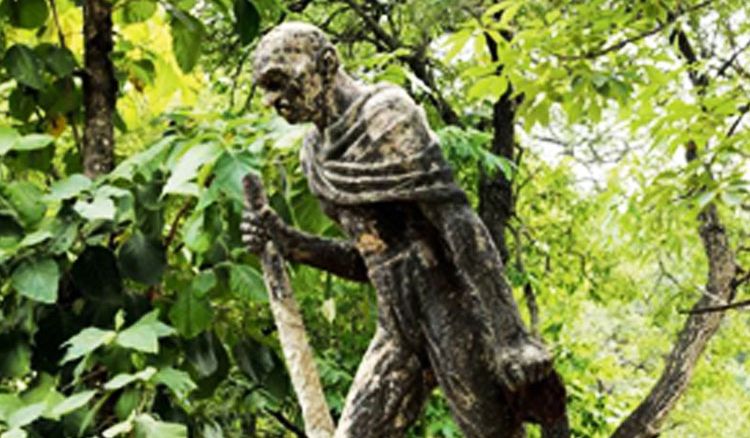“Learning is knowledge of what is worth knowing about.” - M. K. Gandhi

Lead:
Vision
Reconceptualizing Indian intellectual tradition as experiential inquiry. The major projects of this initiative would attempt to access and reconstruct the extraordinary understanding of the experiential world that the Indian intellectual traditions have offered humanity. They are largely inaccessible to us today (made more inaccessible by the academic disciplines such as Indian philosophy, history and anthropology), but seeking inspiration from Gandhi who theorized our cognitive enslavement to the west on the basis of his understanding of Indian thought, this initiative sets itself the two-fold task of reconceptualizing Indian traditions and reformulating the insights of Indian traditions to begin new inquiries into designing new sites of learning.
Research Areas
Conceptualizing cultural difference; Indian ethics; Investigating the forms in which theoretical and practical knowledge could interact and translating that interaction into possible pedagogical models such as the Studio-seminar.
Ongoing Research
The Philosophical Life and the Nature and Role of Concepts: Past, Present and the Future. This is a collaborative project open to faculty and students (both graduate and advanced undergraduate). There are two related but distinct aspects to this project:
a) Practical Knowledge and the Social Sciences:
The inquiry seeks to understand and critique the inability of the social sciences to engage with and incorporate practitional modes of going about in the world. The result has been a social science that is either accumulation of quantitative data or a thinly disguised reform discourse. The objective of this inquiry is to make researchers fashion eminently practical design inquiries that can help transform the social scientific discourse by making it articulate practical knowledge.
b) The Nature of Indian Ethical Concepts:
The objective of this philosophical inquiry is to use logical and linguistic methods to clarify the nature of ethical concepts. The concepts to be investigated will be drawn from texts such as the Gita and the Hind Swaraj as well as from traditions such as the Vacana movement. Our focus will be to understand how concepts such anubhava, anubhaava, dharma, sthithaprajna or purushartha function. If their use persists today, do we see any change in their range and use?
Achievements
Since 2012 BHSI has been organizing a colloquium series and a faculty seminar. BHSI also works with Universities and Research Institutions to organize conferences, seminars and intensive refresher courses.
BHSI has hosted the following international conferences & workshops:
“Law, Ethics, Reason,” (Co-organized with Professor Mohini Mullick, In collaboration with OP Jindal Law University) November 2012.
“Convergences and Divergences: The Gandhi-Tagore Correspondence,” December 2013 (Co-organized with Professor Akeel Bilgrami, Columbia University, New York City,) funded by the Indian Council for Philosophical Research.
“Designs of the Thinkable/Livable and the Grounds of the Humanities,” March 27-28, 2015 (Co-organized with DEL Lab).
Publications
The conceptual and practical link between learning and happiness, so vital to the Indian traditions, is explored in:
Dhareshwar, Vivek, (2019). “Learning and Happiness,” in Vinay Lal ed. Backwater Collective for the Study of Metaphysics and Politics, Vol 2 (New Delhi: Oxford University Press, 2019)
An attempt is made to use the conceptual resources to understand the contemporary world and its predicaments in the following essays:
Dhareshwar, Vivek. (2018). “Sites of Learning and Intellectual Parasitism: The Case for New Humanities,” in Venkat Rao ed. Critical Humanities from India: Contexts, Issues, Futures (New Delhi: Routledge, 2018).
Dhareshwar, Vivek. (2014). Critique, Genealogy and Ethical Action. In A. Bligrami (Ed). Marx, Gandhi and Modernity: Essays Presented to Javeed Alam (pp. 98-126). New Delhi: Tulika).
Dhareshwar, Vivek. (2012).Framing the Predicament of Indian Thought: Gandhi, the Gita, and Ethical Action, Asian Philosophy, 22:3, 257-274.
Ruchika, an undergraduate design student who found her own way of exploring issues around the availability of Indian thought published the essay written for my General Studies class:
Nambiar, Ruchika (2014). “Accessibility of Indian Concepts,” Journal of Contemporary Thought. 40 (Winter).
Opportunities
Younger scholars and those interested in learning how to do research in the areas described above would be encouraged to seek apprenticeship for 3-12 months.
